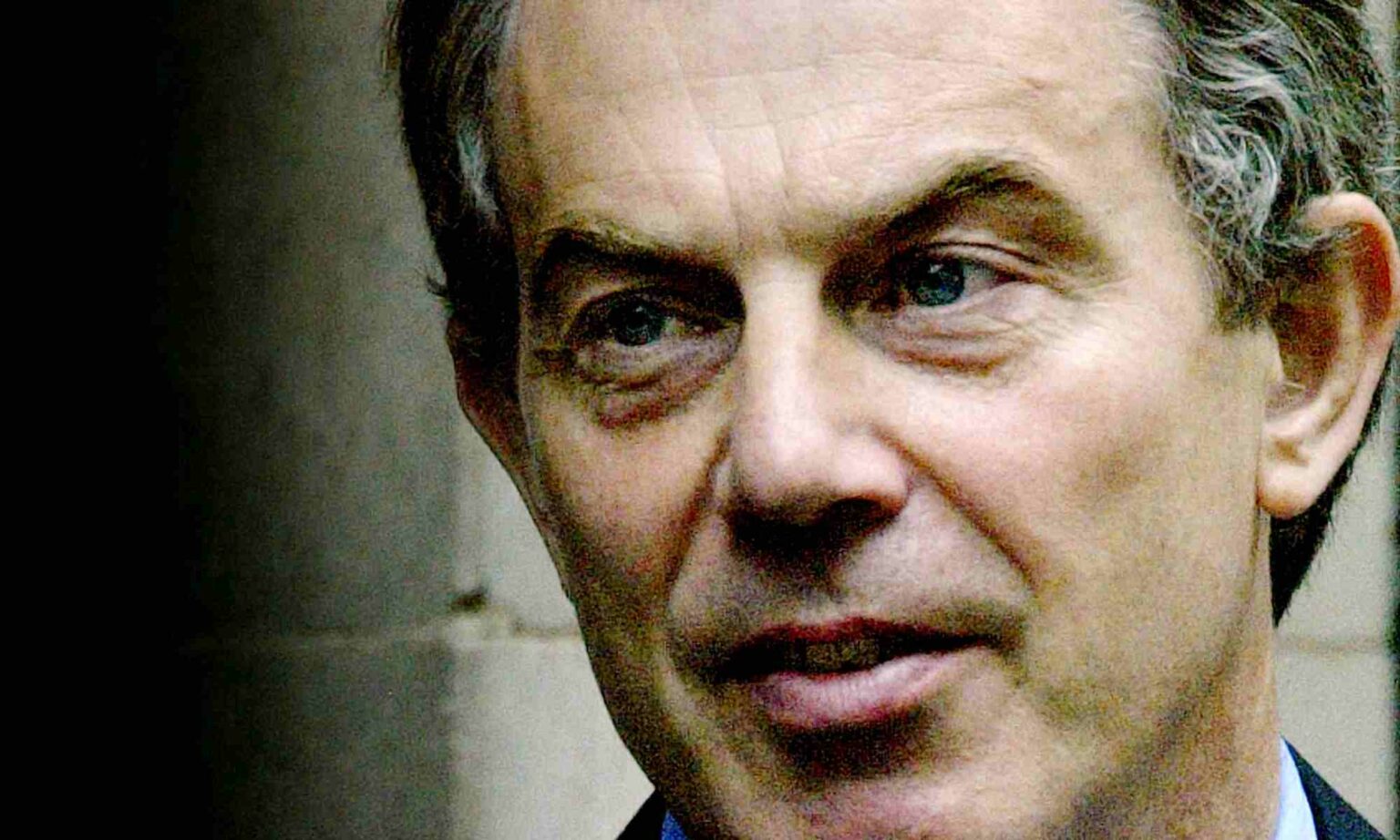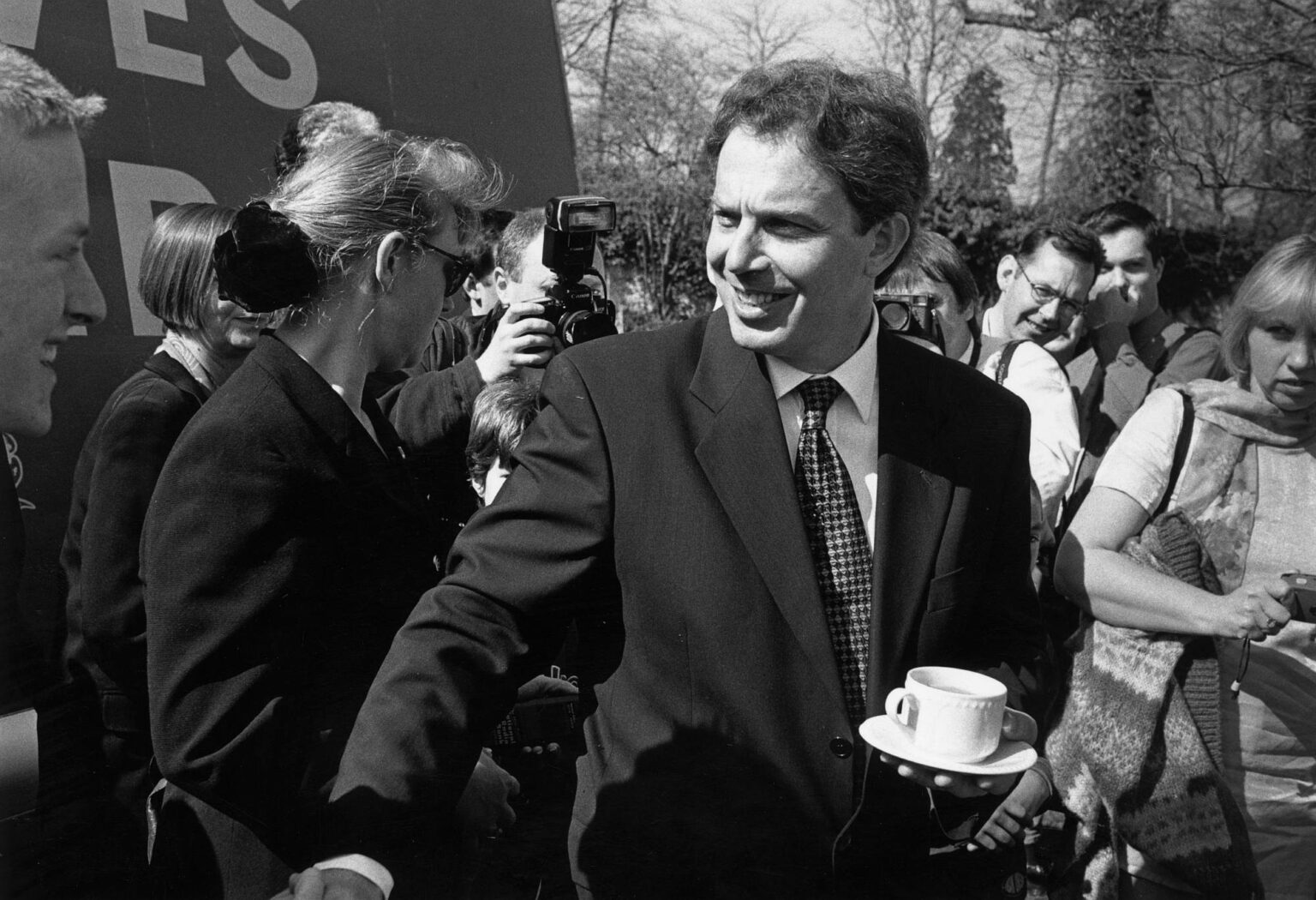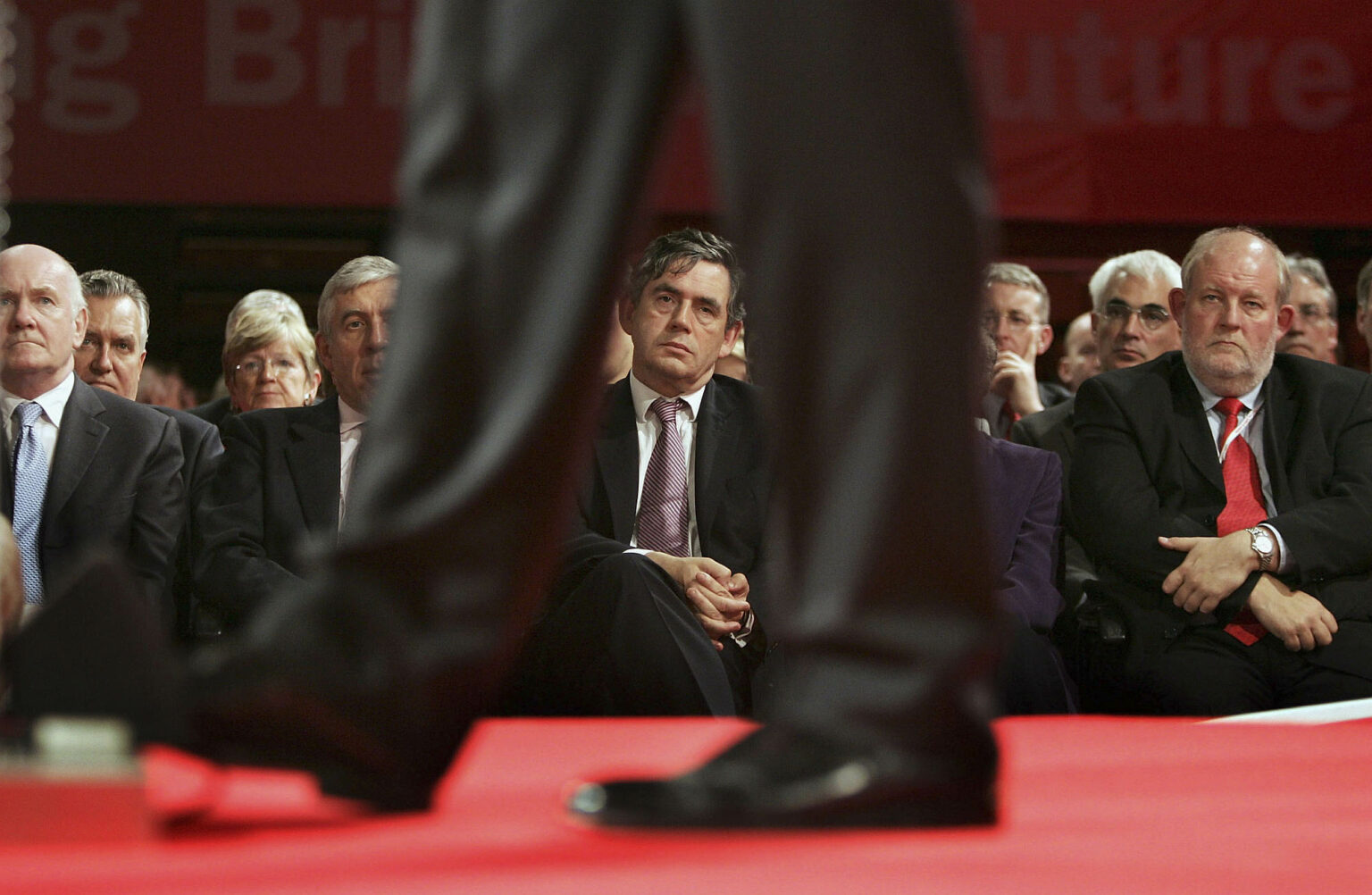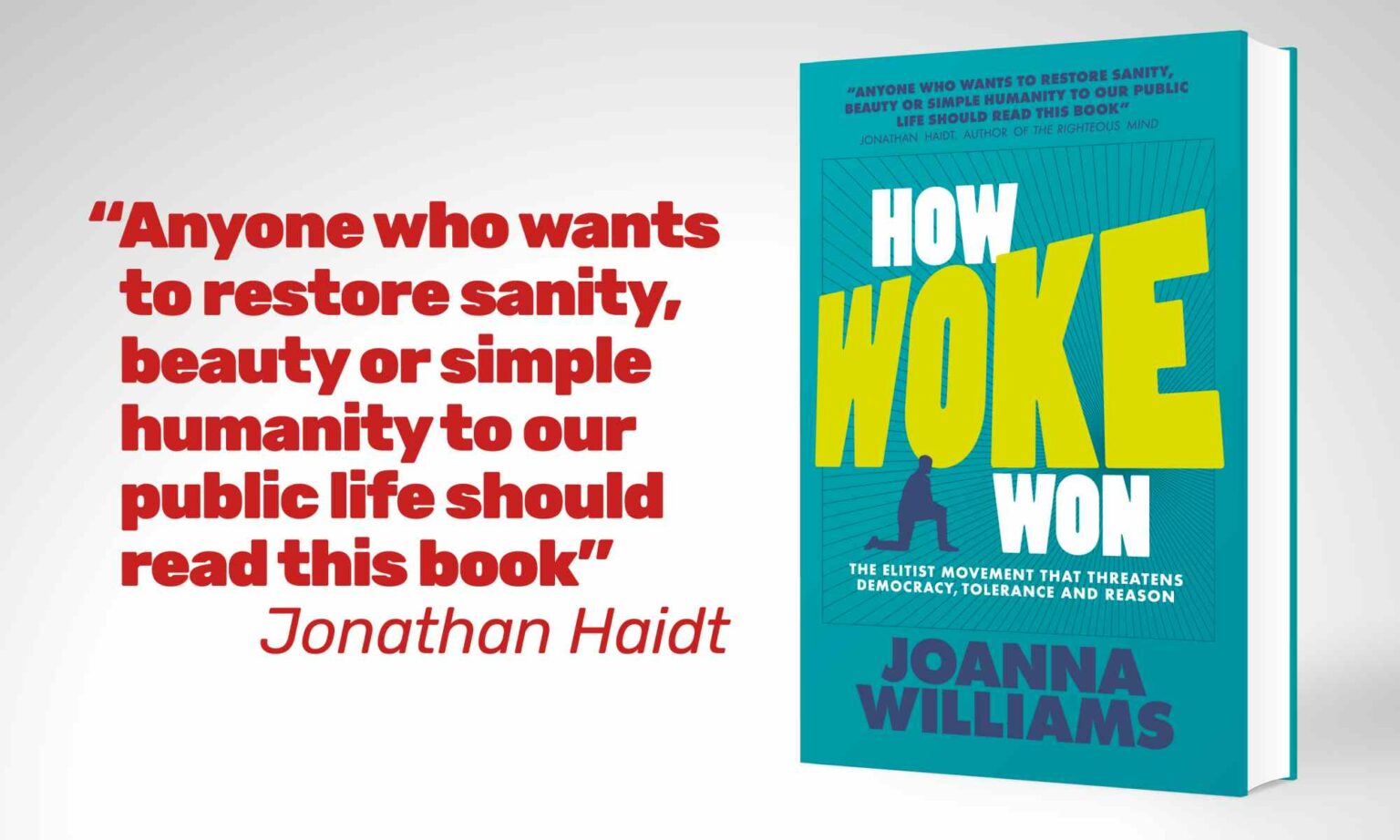
Long-read
25 years on, we are still living in Blair’s Britain
New Labour’s legacy still haunts our freedoms and democracy.
Want to read spiked ad-free? Become a spiked supporter.
There are unlikely to be any street parties or cathedral ceremonies to celebrate the 25th anniversary of the election of Tony Blair’s New Labour government on 1 May. Three-times prime minister Blair is now widely viewed as a political pariah, the man who took Britain to war in Iraq on a lie in 2003, helping to destroy that country and his reputation in the bloody process. You can almost see the collective heart of the UK commentariat sinking whenever Blair reappears (as he constantly does), to pronounce on the issues of the day. In many eyes it seems he has joined Margaret Thatcher as a folk devil of modern British politics.
This near-universal Blair-bashing misses two important things. First, it rewrites history. It covers up the way that, 25 years ago, Blair the pariah was instead hailed as a messiah by the UK’s liberal media, political and cultural elites, come to rescue them from 18 long years of Tory government. Even in 2005, after the hollowness of his government’s political vision had been thoroughly exposed and the truth about the disastrous war in Iraq was well-known, many of those now damning Blair in the media and on the left still campaigned for him to win a third term as prime minister.
Second, and more importantly, the Blair-bashing distorts the present. It misses the fact that, no matter how far Blair’s personal star might have fallen, ‘Blairism’ never went away. What the New Labour governments led by Blair and Gordon Brown did to reshape UK politics, with the support of many who are now bitterly critical, has continued to dominate public life. In a real sense, a quarter century on, we are still living in Blair’s Britain – with dire consequences for our freedom and democracy.

On 1 May 1997, Blair won a landslide electoral victory over John Major’s exhausted Tories, entering 10 Downing Street with Labour’s largest-ever parliamentary majority of 179 seats. Blair had run a long election campaign since becoming Labour leader in 1994, repeatedly chanting his mantra of ‘New Labour, New Britain’. This successfully distanced Blair and Brown from the failures of Labour’s past. But what did they stand for in the present?
Blair’s central election slogan in 1997 was ‘Time for a Change’. Yet this was raised in the context of New Labour rejecting the old party’s formal commitment to radical social change. The name New Labour was invented as an acknowledgement that the left-vs-right, socialism-or-capitalism divides of the 20th century were now history. Blair and Brown effectively accepted Thatcher’s slogan of TINA – that There Is No Alternative to the market economy. Blair staged a theatrical abandonment of Clause 4 of the Labour constitution, the party’s paper commitment to socialism, to signal that the class war was over. New Labour backed this up by adopting self-consciously moderate and conservative policies, such as retaining Thatcher’s anti-trade union laws.
So, if social change was off the agenda, what sort of ‘change’ was Blair advocating, apart from merely a new face in No10? The answer: New Labour firmly believed in changing how people lived their lives, and regulating human behaviour. It would be the central new role of government to discourage bad habits, interfering in everything from what we should eat and drink to what we were allowed to say and think.
This zealous commitment to regulating people’s lives would become what New Labour leaders called ‘the new politics of behaviour’, or what some of us characterised as ‘the new authoritarianism’. The UK state intervening in citizens’ lives on an unprecedented scale posed obvious dangers to our liberties. From the start it should have been obvious that, contrary to the lazy criticism offered by some on the left, New Labour’s prime minister was not just ‘TORY BLAIR’, a continuation of the old Conservatives. Something new was afoot.
In 1997, I was editor of the newly relaunched LM magazine (nee Living Marxism). Having previously splashed a front cover in 1995 declaring ‘Tony Blearghh – why Labour would be even worse than the Tories’, we were never part of the cult of TB.
In the first issue of LM after New Labour’s election, we ran a front cover and accompanying editorial on the theme of ‘Thou Shalt Not’, attacking ‘The Tony Blair Commandments: Thou Shalt Not smoke, drink or eat what you like; have a gun, a knife or a wild sex life; watch, read or download what you want; bring up your children as you see best; use what words, gestures or jokes you choose; or in any other way think for yourself.’
The commitment to regulating personal behaviour would set the tone for the entire Blair-Brown era, from 1997 to 2010. Moreover, it was taken up by New Labour’s successors, first in the Conservative-Lib Dem coalition led by David Cameron (2010-15), and then by the Tory governments under Cameron, Theresa May and Boris Johnson, evolving from the new politics of behaviour to the politics of ‘nudge’. Under the SNP, Scottish governments have if anything been even more enthusiastic about regulating how people live.
Of course, during the Covid-19 pandemic, the extraordinary state policing of personal behaviour under the official lockdowns of 2020-21 took the politics of illiberalism to new heights (or lows). But even these measures were built on the foundations of the new authoritarianism laid in the New Labour era.
Since 1997 all British political leaders have effectively acted as Blair’s heirs, accepting that ‘too much’ liberty is a problem, that the freedom to ‘run wild’ (that is, live as you choose, even within the law) is a potential danger to society. Thus Johnson, a supposedly instinctive libertarian, oversaw the lockdowns and is now pushing through an authoritarian Online Safety Bill that will further police free speech by forcing social-media firms to clamp down on posts branded ‘legal but harmful’, in the name of safety.
New Labour’s obsession with regulating behaviour reflected the elites’ basic mistrust of the mass of humanity. That same mistrust had serious implications for democratic politics in the UK. It would underpin the effective war on democracy that the British authorities and elites have been waging ever since.
New Labour accelerated a shift in power from elected to unelected and unaccountable institutions. After all, the electorate might have voted for Blair, but that was no reason to trust them to do as they were told in future.
Significantly, no sooner had New Labour been elected than Chancellor of the Exchequer Gordon Brown announced that he was handing the power to set UK interest rates over to a committee in the Bank of England. As Guardian economics editor Larry Elliott observed at the time, the name of the governor of the Bank of England, Eddie George, had not appeared anywhere on the ballot papers just completed by 13million New Labour voters. Yet overnight this unelected banker had been put in charge of setting the interest rates that affected people’s mortgages and savings, thus removing UK monetary policy from the sphere of democratic political debate. No government since has challenged that undemocratic shift.

All of the serious constitutional changes pursued by New Labour were in the same anti-democratic direction. The Human Right Acts 1998 gave unaccountable judges enormous powers over political and social issues that should be no business of the courts. Those democracy-shredding judicial powers were further enhanced by the creation of the UK Supreme Court through Blair’s Constitutional Reform Act 2005, though that court did not come into operation until 2009, after Blair had resigned as PM and been replaced by Brown.
The dire consequences of empowering the judicial arm of the state have since become increasingly evident, in everything from the Supreme Court’s attempts to hobble Brexit to the use of judge-developed privacy laws, never passed by parliament, to hammer press freedom on behalf of the powerful. The current Conservative government has promised legal reform to swing the pendulum back away from the courts, but few are holding their breath.
Meanwhile, we are still living with other anti-democratic consequences of the ‘Blair project’, such as the further politicisation of the civil service into a government-thwarting Whitehall ‘blob’. And, importantly even though perhaps unintentionally, the elevation of the House of Lords into a modern bastion of anti-democracy.
The 1999 House of Lords Act removed most (mostly Tory) hereditary peers from parliament, to be replaced by politically appointed life peers. Blair declared that this would be only the first stage in the process of making the lords more democratic and legitimate.
Instead, the upper house is now stuffed with more unelected lords than ever; with a complement of more than 800 peers, it is the world’s largest legislative body apart from the People’s Congress in Communist China, and about as democratic. These unelected life peers, mostly a collection of former, failed and sometimes fraudulent politicians, have not an ounce more democratic legitimacy than their hereditary forerunners. But, with an in-built anti-Tory majority, they are far more active in seeking to thwart the will of the elected government. Blair might have personally turned down a seat in the lords, but his legacy lives on in that elitist, anti-democratic clubhouse.
New Labour justified its political changes using the language of ‘political sleaze’, attacking the Tories for their tax returns and dodgy deals more than for their policies. Blair stood for election 25 years ago as a self-declared ‘pretty straight guy’ whose government would be ‘whiter than white’. Inevitably, New Labour was soon embroiled in scandals of its own. But using accusations of ‘sleaze’ stuck as a debased mainstay of British politics, often distracting from and devaluing the real issues at stake. We can see the legacy in the way that Boris’ rule-breaking Downing Street birthday cake has become a bigger thing in Westminster than the real scandal of the authoritarian lockdown itself.
The politics of sleaze decreed that most elected politicians – and by extension, those who elected them – could not be trusted. Thus, New Labour set up another unaccountable quango, the Electoral Commission, supposedly to sit on the moral high ground and police our elections and elected representatives. The Tories are now under fire for trying to introduce some (no doubt self-serving) reforms to the Commission. But let us be clear that the Electoral Commission has been a partisan agent of the establishment, undermining representative democracy. Only the electorate should have the power to hold the elected to account.
In making the exercise of power less accountable and more technocratic, New Labour was taking the populace out of politics, the demos – people – out of democracy. The demobilisation of the electorate was evident in the 1997 election, when Blair won his landslide on the lowest turnout since 1935. In his subsequent elections, turnout fell further still, reaching the historic low of 59.4 per cent in 2001. It has since recovered somewhat, but to nowhere near past levels.
However, the one thing that New Labour did not factor into its drift from democracy was the Brexit revolt. New Labour saw the European Union as an important bulwark against ‘too much’ popular democracy, with power invested in EU councils and commissions. Blair was an enthusiast for the further centralisation of the EU, and even wanted to take Britain into the euro currency system.
Yet in the 2016 EU referendum, despite all Blair and Brown’s best efforts and after pro-EU Tory governments had long succeeded New Labour, 17.4 million famously voted Leave in the biggest democratic revolt against the establishment in British history. Afterwards a stunned-looking Blair became a leading Remoaner. Meanwhile, the anti-democratic legacy he left behind, from the Supreme Court to the lords and the civil service, attempted to stuff the genie back into the bottle and undermine or even overthrow the Brexit for which we voted.
On the 25th anniversary of the election of New Labour, we should not be taken in by the desperate attempts of the media and political elites to distance themselves from the same Tony Blair whom they long lauded. They are almost all, in one way or another, Blair’s heirs.
If we are to stand a chance of finishing what the Brexit revolt started, we need finally to settle scores with the long legacy of what Blairism began, and put personal freedom and popular democracy back at the heart of British politics.
Mick Hume is a spiked columnist. His latest book, Revolting! How the Establishment is Undermining Democracy – and What they’re Afraid of, is published by William Collins.
Picture by: Getty.
Who funds spiked? You do
We are funded by you. And in this era of cancel culture and advertiser boycotts, we rely on your donations more than ever. Seventy per cent of our revenue comes from our readers’ donations – the vast majority giving just £5 per month. If you make a regular donation – of £5 a month or £50 a year – you can become a and enjoy:
–Ad-free reading
–Exclusive events
–Access to our comments section
It’s the best way to keep spiked going – and growing. Thank you!








Comments
Want to join the conversation?
Only spiked supporters and patrons, who donate regularly to us, can comment on our articles.